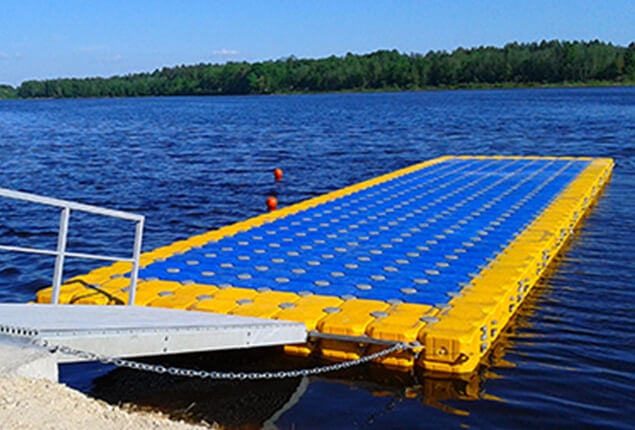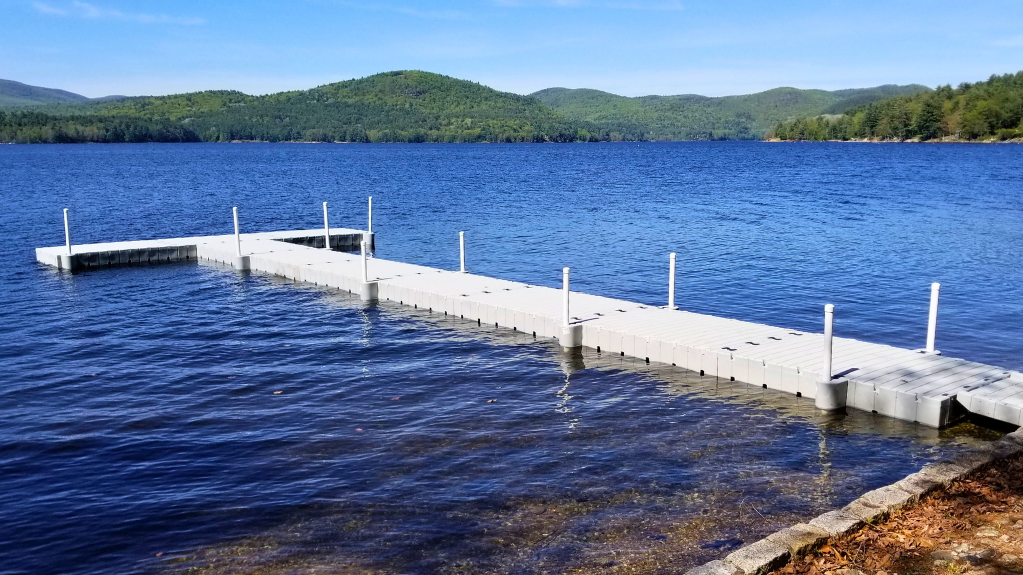Navigating the Options: Picking the Right Dock Company for Your Floating Dock Project
Navigating the Options: Picking the Right Dock Company for Your Floating Dock Project
Blog Article
Floating Docks: The Perfect Option for Versatile Water Accessibility
Floating docks present a compelling remedy for a selection of water gain access to needs, using convenience that transcends traditional mooring options. The modular nature of floating docks facilitates personalization, providing to details demands.
Benefits of Floating Docks
Floating docks offer many benefits that improve water accessibility for numerous applications. Their ability to fluctuate with changing water levels makes them especially beneficial in atmospheres with fluctuating tides or seasonal variants. This flexibility makes sure that vessels can quickly moor without worry for the water's depth, offering a trustworthy system for recreational, industrial, and industrial uses.
In addition, floating docks are often built from durable products that withstand deterioration, making them appropriate for long-term use in marine atmospheres. Their installment is usually much less intrusive than conventional set docks, decreasing the ecological effect and promoting quicker deployment (floating dock services). This flexibility permits for simpler moving or reconfiguration according to user needs or ecological changes
Security is one more vital advantage; floating docks can give steady gain access to for individuals disembarking or boarding from boats and minimize the risk of mishaps connected with unsteady surface areas. Moreover, they can be created to suit a range of accessories, such as cleats and fenders, improving performance. In general, floating docks stand for a reliable service for boosting water gain access to throughout varied industries while advertising safety and security and environmental sustainability.

Types of Floating Docks
Numerous sorts of floating docks cater to various demands and environments, each developed with specific attributes to enhance capability. One of the most typical types include modular docks, which consist of interlocking areas that permit simple modification and expansion. These docks are optimal for recreational use, as they can be customized to fit numerous boat sizes and water conditions.
One more popular option is the stationary floating dock, which stays secured in position yet drifts with changing water levels. floating dock services. This type is specifically suited for areas with marginal tidal changes, giving stable accessibility for fishing or swimming. Furthermore, there are drive-on docks, which include a sloped design that permits watercrafts to easily drive on and off, making them suitable for personal boat and smaller sized vessels
For commercial applications, sturdy floating docks are available, constructed from reinforced products to stand up to significant lots and severe aquatic settings. Finally, environmentally friendly floating docks use lasting materials and styles to reduce ecological influence, commonly integrating attributes like plant life to support neighborhood wild animals. Comprehending the numerous kinds of floating docks makes sure that customers can pick the most ideal service for their certain requirements.
Setup Refine Introduction
An effective setup of floating docks requires careful planning and attention to information to make certain optimum performance and security. The first step involves assessing the website conditions, consisting of water deepness, present, and prospective challenges. This assessment notifies the choice of the proper dock products and style customized to the certain atmosphere.
Following, acquiring needed licenses is essential, as many territories have laws regarding construction on water bodies. The installation can continue once authorizations are secured. Begin by dock company preparing the structure, which might involve anchoring systems or pilings tailored to the dock kind and neighborhood conditions.
Following the structure setup, put together the dock sections according to maker specs. Make certain that all components are safely secured and straightened to hold up against ecological stresses. Setting the dock in the marked area, guaranteeing it is level and secure.

Upkeep Tips and Finest Practices
After the installment process is total, continuous maintenance plays a vital role in making certain the longevity and performance of floating docks. Normal assessments ought to be carried out to determine any type of indicators of deterioration, wear, or damages - floating docks. Inspect for any loose installations, splits, or separation in the dock areas, as these can endanger structural integrity
Cleaning the dock is vital to get rid of debris, algae, and various other accumulation that can impact its appearance and safety. Make use of a mild pressure laundry occasionally to preserve cleanliness without triggering damages to the surface. Furthermore, using a protective sealant every few years can assist improve durability and withstand environmental wear.
Take note Check Out Your URL of the mooring lines and supports, guaranteeing they are free and protected from corrosion. Replace any degraded components immediately to prevent threats. Seasonal adjustments might also be necessary; throughout extreme weather conditions, enhancing the dock or rearranging can protect against damage.
Applications for Floating Docks
Floating docks offer a wide range of applications, accommodating both commercial and leisure requirements. In leisure settings, they give smooth accessibility to waterways for tasks such as boating, angling, and swimming. Their adjustable nature enables installment in differing water degrees, making sure stable and risk-free gain access to regardless of tidal changes.
Readily, floating docks are important for marinas and waterfront companies. They help with the docking of vessels, enabling effective packing and unloading of goods. Their modular design enables simple development or reconfiguration find this to suit transforming organization needs, making them suitable for watercraft leasings, tour operations, or angling charters.
Additionally, floating docks are utilized in environmental applications such as aquatic research and environment restoration. They can function as systems for scientific research studies, keeping track of water high quality, or conducting wild animals studies without troubling sensitive environments.
In industrial contexts, floating docks are utilized in building tasks, providing access to hard-to-reach locations for tools and workers. Their versatility, resilience, and very little influence on the environment make them an ideal choice for a wide variety of applications, boosting both performance and ease of access in different water-based settings.
Conclusion
In final thought, floating docks stand for an ideal remedy for varied water accessibility needs, owing to their versatility, sturdiness, and modular layout. These frameworks help with secure mooring for numerous applications while decreasing environmental effect during installment. The lowered upkeep needs even more boost their functionality. Therefore, floating docks offer as a useful possession for recreational, industrial, and ecological jobs, making certain trustworthy accessibility to waterways and promoting lasting methods in aquatic atmospheres.
Floating docks present a compelling solution for a selection of water access requires, supplying adaptability that goes beyond standard mooring options.Floating docks deal countless benefits that boost water access for various applications. Overall, floating docks stand for an effective service for improving water accessibility throughout varied sectors while advertising security and environmental sustainability.
Another prominent choice is the stationary floating dock, which remains anchored in location yet floats with transforming water degrees.In verdict, floating docks represent an optimal remedy for varied water gain access to requires, owing to their versatility, longevity, and modular style.
Report this page